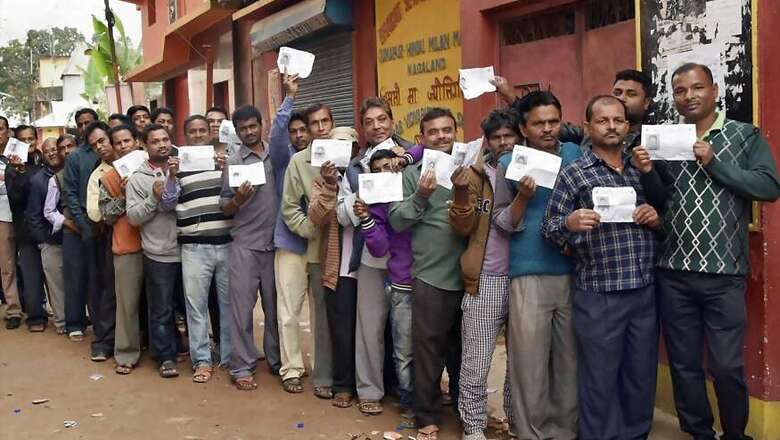
views
New Delhi: During a good part of the election results day, NDPP candidate Awan Konyak looked poised to win her constituency, Aboi. Later, however, ruling NPF candidate Eshak Konwak won the seat and yet again, Nagaland continued with its bias against women in governance.
Awan was also the first Konyak woman to contest elections and one of the five women to have entered the election fray in Nagaland this year. While Wedie-u Kronu and Mangyangpula contested on National People's Party (NPP) tickets from Dimapur-III and Noksen Assembly constituencies, Rakhila was a BJP nominee from Tuensang Sadar-II seat. Rekha Rose Dukru was an Independent candidate from Chizami constituency. All of them lost.
It was in 1977 that Nagaland saw Rano M Shaiza being elected to the Parliament — the first woman from the state to become an MP. Ever since its formation in 1963, Nagaland had only 30 women contesting elections but none of them won.
This year, five candidates were in the fray, better than 2013’s count when there were just two candidates. This time around, both ruling Naga People’s Front (NPF) and Congress failed to rope in a woman candidate saying that they did not have a ‘strong candidate’ to field. Other than NDPP’s Awan, BJP too had fielded a woman candidate and so did NPP.
Women in Nagaland have had a tricky role to play in governance and society in general. As per the state’s gender statistics, 76% of women in Nagaland are literate as compared to the national average of 65%. Their representation in government and private jobs is also significant at 23.5% and 49%, respectively. However, when it comes to the rule of the land, women still cannot inherit property. Even in village development boards, woman do not have much say.
Nagaland’s gender issues came to the fore last year when the NPF government tried to conduct municipal elections — which had not been held for 13 years — and also advocated a 33% reservation for women. The move invited widespread violence in capital Kohima and several influential tribal leaders opposed it, saying the move would be in violation of Article 371 (A) of the Constitution.
Tribal laws are protected under this Article and as per these laws, women are not given a role in village councils. The opposition to elections and to the proposal of women’s representation was such that Chief Minister TR Zeliang was forced to step down last year.




















Comments
0 comment